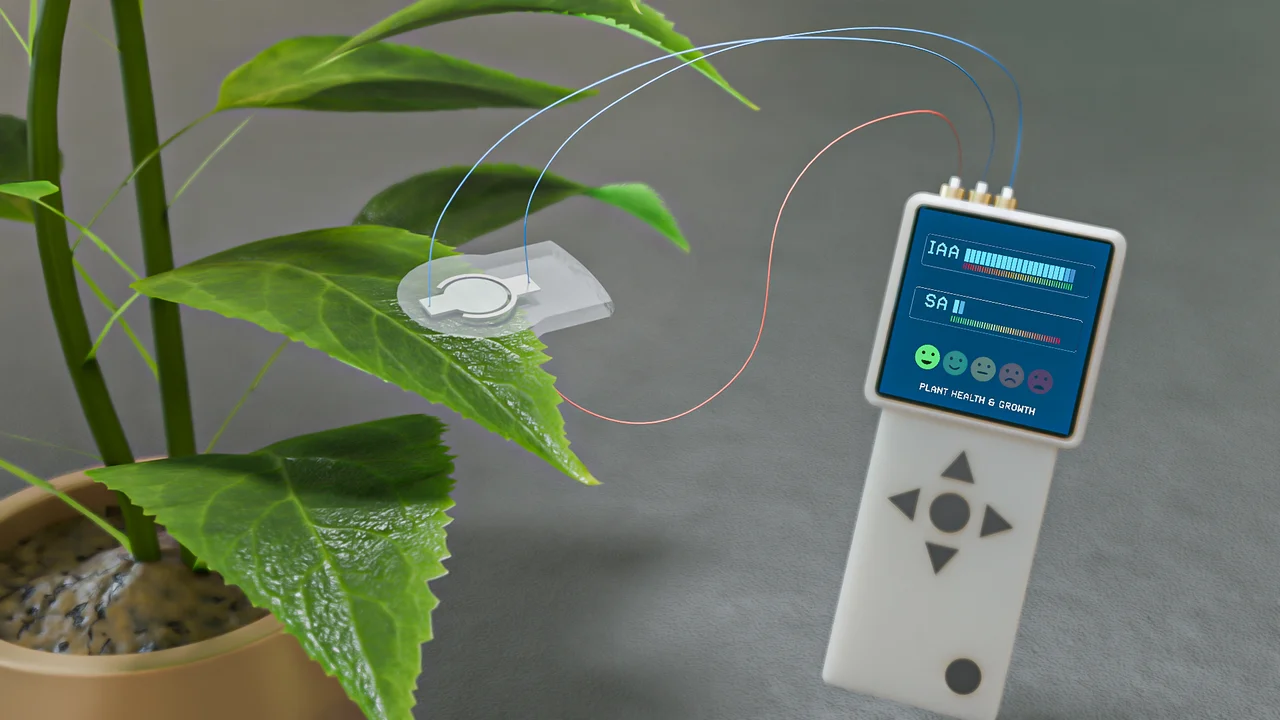
Sensing stress to keep plants safe
A minimally invasive sensor can continuously measure levels of stress hormones.
About
A sensor that can measure hormone concentrations in plants precisely and in real-time with minimal damage can help understand how hormones affect plants’ response to disease and stress. With further development, it could also be part of an agricultural toolkit for early detection of disease or stress, enabling farmers to intervene before extensive crop damage.
Plant hormones regulate key aspects of the plant life cycle, including growth and environmental response. In this study, KAUST researchers focused on two hormones related to stress and disease response: salicylic acid and auxin[1].
Existing techniques for measuring the concentration of these and other hormones rely on genetic engineering or destructive sampling and cannot be readily used in nonmodel plants. While effective for lab research, they are too laborious and expensive for use in agriculture. These techniques also provide a single snapshot in time rather than the possibility of continuous monitoring.
Read the full story here.

